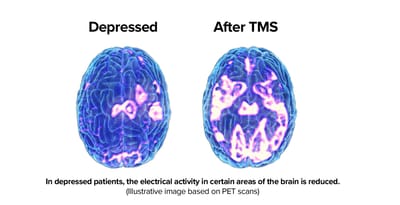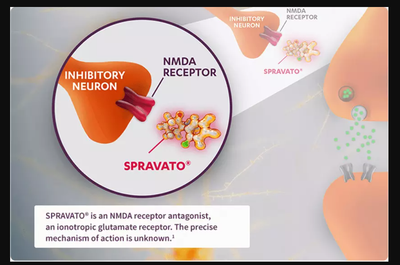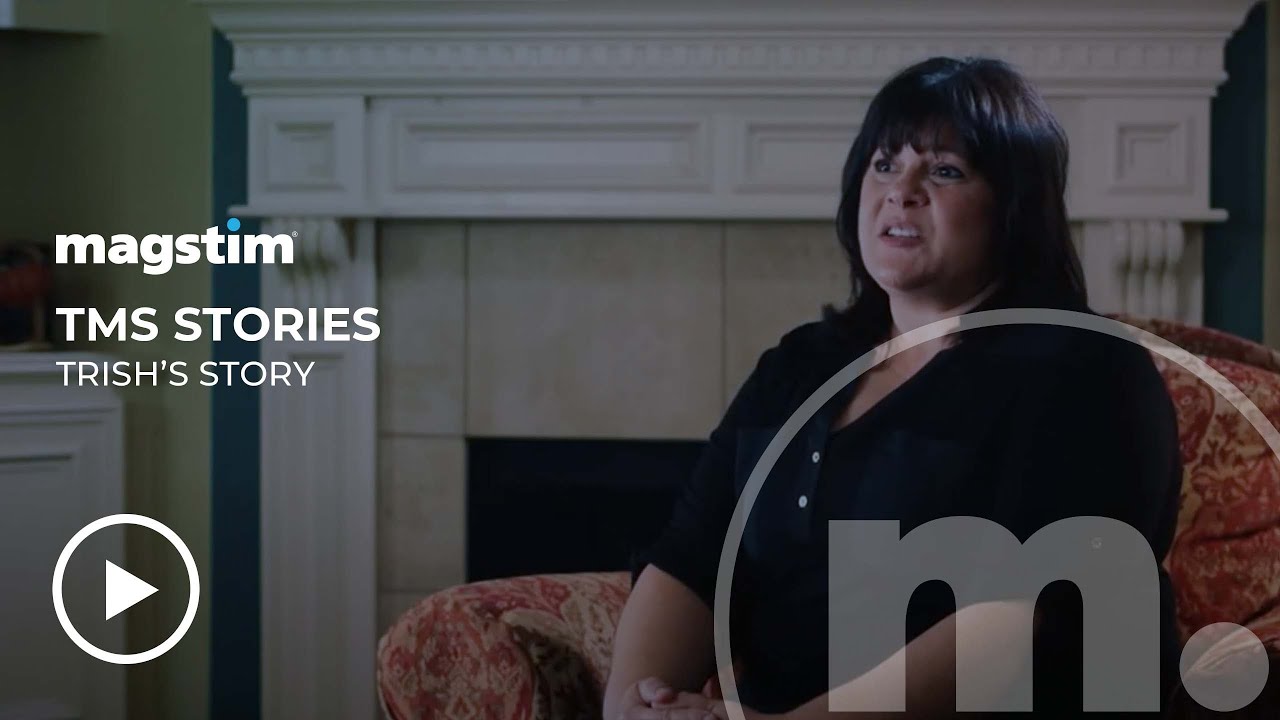Accepting new Patients
Trans-cranial Magnetic Stimulation for depression and anxiety available
Submit Intake form Below
Intake form
ALL NEW PATIENT REQUEST PLEASE FILL OUT AND SUBMIT THE INTAKE FORM BELOW. APPOINTMENT AVAILABLE WITHIN 7 BUSINESS DAYS.
Trans-cranial magnetic stimulation (TMS)
What is TMS?
Transcranial magnetic stimulation (TMS) is a medication-free, non-invasive treatment that uses repetitive magnetic pulses to stimulate nerve cells in the brain to improve symptoms of depression.
During a TMS session, an electromagnetic coil is placed against the scalp. The electromagnet pulse stimulates nerve cells in the region of your brain involved in mood control and depression.
Trans-cranial Magnetic Stimulation (TMS) is FDA-approved for Major Depressive Disorder, Anxiety and obsessive-compulsive disorder (OCD).
It has fewer side effects than most medications and is twice as effective as most medications.
For most people, the effects are lasting, and they stay depression-free for years to come.
It is covered by MOST INSURANCE, including MEDICARE.
Transcranial magnetic stimulation (TMS) is a medication-free, non-invasive treatment that uses repetitive magnetic pulses to stimulate nerve cells in the brain to improve symptoms of depression.
During a TMS session, an electromagnetic coil is placed against the scalp. The electromagnet pulse stimulates nerve cells in the region of your brain involved in mood control and depression.
Trans-cranial Magnetic Stimulation (TMS) is FDA-approved for Major Depressive Disorder, Anxiety and obsessive-compulsive disorder (OCD).
It has fewer side effects than most medications and is twice as effective as most medications.
For most people, the effects are lasting, and they stay depression-free for years to come.
It is covered by MOST INSURANCE, including MEDICARE.

TMS Patient testimonial
F.A.Q on TMS
What is TMS (Transcranial Magnetic Stimulation)?
Transcranial magnetic stimulation (TMS) is a non-invasive treatment that uses repetitive magnetic pulses to stimulate nerve cells in the brain to improve symptoms of depression.
During a TMS session, an electromagnetic coil is placed against the scalp. The electromagnet pulse stimulates nerve cells in the region of your brain involved in mood control and depression.¹
TMS Therapy is typically used when other depression treatments haven’t been effective.
During a TMS session, an electromagnetic coil is placed against the scalp. The electromagnet pulse stimulates nerve cells in the region of your brain involved in mood control and depression.¹
TMS Therapy is typically used when other depression treatments haven’t been effective.
Are there any side effects to TMS Therapy?
TMS has few known side effects. The most common side effects are mild scalp discomfort or headaches during treatment, but normal activities can typically be resumed immediately after treatment.
Is TMS covered by my insurance?
TMS is covered by most insurance providers including Medicare (and by Medicaid in some states). Prior authorization is typically required for insurance coverage. Your physician will manage this process. Typically, treatment with antidepressant medications and psychotherapy may be needed before insurance will authorize TMS Therapy.
What does TMS feel like?
The magnetic coil which delivers TMS is positioned on the head. You will hear a clicking sound and feel a tapping sensation on your head when the magnetic pulses are delivered. Many patients watch television or read during treatment.
Who can get TMS treatment?
TMS Therapy is indicated for the treatment of Major Depressive Disorder in adult patients who have failed to achieve satisfactory improvement from prior antidepressant medication in the current episode.
How long will it take for the treatment to work?
This will vary from person to person.
It is commonly reported that patients need 30 to 36 sessions of TMS to feel relief from their depression symptoms. In clinical trials, approximately 58% of treatment-resistant patients responded positively to rTMS therapy.
It is commonly reported that patients need 30 to 36 sessions of TMS to feel relief from their depression symptoms. In clinical trials, approximately 58% of treatment-resistant patients responded positively to rTMS therapy.
Is TMS safe?
TMS has over two decades of clinical and scientific research supporting its safe use and application. FDA-cleared for the treatment of MDD, TMS Therapy is an effective, non-invasive, outpatient treatment, with few known side effects.
Who is not a candidate for TMS?
TMS Therapy is well tolerated for most. However, not all patients are appropriate candidates for TMS Therapy.
For example, patients with a history of seizures or who have metal implants or objects in or near their head are not appropriate candidates for TMS Therapy. To determine if TMS Therapy may be right for you, your supervising doctor or psychiatrist will carefully screen for the presence of medical conditions or metal objects which may make TMS unsuitable.
For example, patients with a history of seizures or who have metal implants or objects in or near their head are not appropriate candidates for TMS Therapy. To determine if TMS Therapy may be right for you, your supervising doctor or psychiatrist will carefully screen for the presence of medical conditions or metal objects which may make TMS unsuitable.
What is the success rate of TMS?
On average, three out of four TMS patients with major depression experience powerful positive effects from TMS, and of those patients, about half experience a complete remission of their symptoms for up to a year after just one course of treatment!
ESketamine (INTRANASAL)


What is ESKETAMINE?
KETAMINE (INTRANASAL ESKETAMINE) Intranasal Spray is indicated, in conjunction with an oral antidepressant, for the treatment of:
**Treatment-resistant depression (TRD) in adults.
**Depressive symptoms in adults with major depressive disorder (MDD) with acute suicidal ideation or behavior. SPRAVATO (esketamine) is the first and only NMDA receptor antagonist approved for 2 subtypes of MDD in adult patients.
SPRAVATO treatment is covered by most insurance companies.
CONTACT THE OFFICE TODAY TO GET STARTED.
Click on the link below for more information regarding SPRAVATO
https://www.spravatohcp.com/sites/www.spravatohcp.com/files/SPRAVATO-Patient-Brochure.pdf?v=257568
https://www.spravatotreatmentcenter.com/sites/www.spravatotreatmentcenter.com/files/SPRAVATO_Dual_Indication_Product_Fact_Sheet.pdf?v=12
KETAMINE (INTRANASAL ESKETAMINE) Intranasal Spray is indicated, in conjunction with an oral antidepressant, for the treatment of:
**Treatment-resistant depression (TRD) in adults.
**Depressive symptoms in adults with major depressive disorder (MDD) with acute suicidal ideation or behavior. SPRAVATO (esketamine) is the first and only NMDA receptor antagonist approved for 2 subtypes of MDD in adult patients.
SPRAVATO treatment is covered by most insurance companies.
CONTACT THE OFFICE TODAY TO GET STARTED.
Click on the link below for more information regarding SPRAVATO
https://www.spravatohcp.com/sites/www.spravatohcp.com/files/SPRAVATO-Patient-Brochure.pdf?v=257568
https://www.spravatotreatmentcenter.com/sites/www.spravatotreatmentcenter.com/files/SPRAVATO_Dual_Indication_Product_Fact_Sheet.pdf?v=12
Physician

Dr. Aimua is board-certified in Psychiatry by the American Board of Psychiatry and Neurology with over fifteen years of clinical experience providing individualized psychiatric care through medication management combined with different psycho-therapeutic interventions to address a broad range of DSM 5 psychiatric syndromes.
Services
TMS Treatment
Numerous studies have demonstrated the safety and effectiveness of TMS in MDD/OCD/Anxiety, especially in treatment-resistant patients who have not responded to medications. Approximately 58% of treatment-resistant patients respond positively to TMS therapy.
Psychiatry Services
Dr. Aimua provides psychiatric treatment for various DSM 5 psychiatric disorders using a combined approach of medication management with psychotherapy. Gene-sight Genetic Testing: A pharmacogenomic test that analyzes clinically important genetic variations that may impact how the patient metabolizes and responds to certain medications. Dr. Aimua now provides INTRANASAL KETAMINE (SPRAVATO)for treatment for depression. (See below for details)
APPT F.A.Q
in-network INSURANCE
We are in-network with the following health insurance plans.
ANTHEM BCBS
BCBSTN
BLUECROSS-BLUESHIELD ( ALL STATES)
UNITED HEALTHCARE/ OPTUM/UMR
UNITED HEALTHCARE MEDICARE ADVANTAGE
UNITED HEALTHCARE TNDSP
TRICARE
MEDICARE (STRAIGHT RED/WHITE AND BLUE)
CIGNA/EVERNORTH
AETNA COMMERCIAL
AETNA MEDICARE ADVANTAGE
IMAGINE 360
MEDCOST
SELF PAY
ANTHEM BCBS
BCBSTN
BLUECROSS-BLUESHIELD ( ALL STATES)
UNITED HEALTHCARE/ OPTUM/UMR
UNITED HEALTHCARE MEDICARE ADVANTAGE
UNITED HEALTHCARE TNDSP
TRICARE
MEDICARE (STRAIGHT RED/WHITE AND BLUE)
CIGNA/EVERNORTH
AETNA COMMERCIAL
AETNA MEDICARE ADVANTAGE
IMAGINE 360
MEDCOST
SELF PAY
OFFICE LOCATION
- 206 PRINCETON ROAD, STE 18, JOHNSON CITY, TN 37601
- +1-423-631-0024 - TEXT: 423-631-0024
- 423-631-0047 - FAX
- crestpp@protonmail.com
- OFFICE HOURS Mon: 8am to 4:00pm Tuesday: 8am to 4:00pm Wednesday: 8am to 12noon Thursday: 8am to 4:00pm Friday: 8am to 12noon
